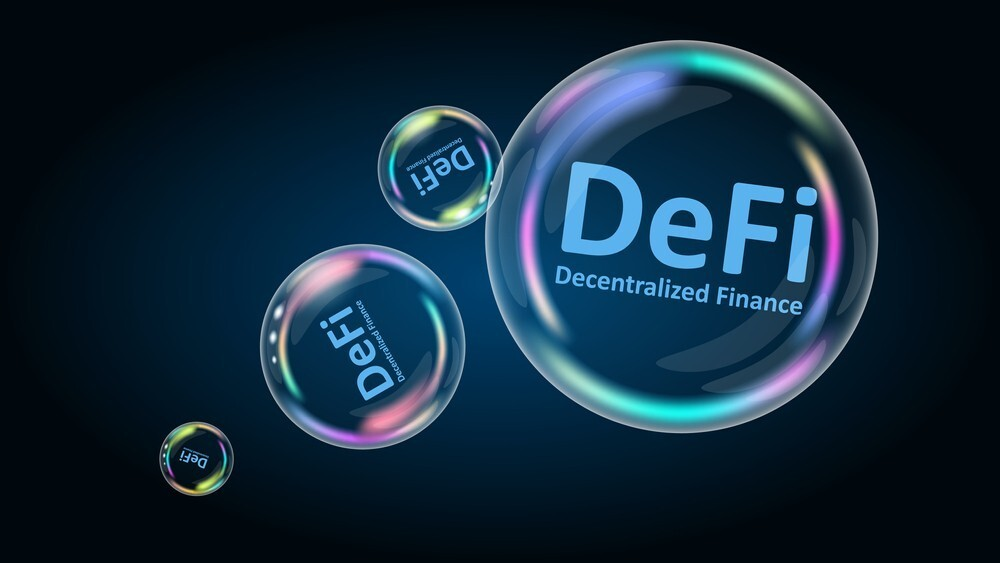DeFi, or Decentralized Finance, plays a role of significant importance in today’s finance sector. It can physically strengthen banking and partially justify the products and services of banks by itself. (Of course, the business of payment and payments cannot substitute for banks but is an interesting alternative to them.) Rebranded as decentralized- blockchain-based financial products and services in 2020 DeFi offers consumers new choices when it comes to financial solutions. People now wish to circumvent interlocking relationships akin to those between banks and state power for their self-declarations of asset allocation. DeFi Today, already worth billions of dollars and changing all the time, is challenging the traditional banking system’s birthright. It provides new possibilities for those seeking financial innovation on top of their funds and fees better than those of any bank or national Treasury which would shackle them!
Understanding DeFi
DeFi is a general term for blockchain-based financial applications that want to construct an open-source, un-permissioned and transparent financial service network. Unlike traditional finance, DeFi relies on decentralized protocols rather than central authorities like banks for performing deals. It uses blockchain technology to enable peer-to-peer interactions and smart contracts for transaction execution. The main points that clarify what it means to be “deFi” Smart Contracts — Contracts with terms embedded in the blockchain. Smart contracts make it possible for DeFi projects to perform transactions without human intervention when certain conditions are met, thereby reducing the need for intermediaries. Transparency — All transactions on the blockchain are recorded and publicly visible: users can know what every transaction and all system operation.
Nobody has to go to a bank to capture all the benefits of remote digital money services, and this is quite different from traditional banking methods.
Programmable nature -DeFi plans, and their supporting software codes make it quite easy to allocate funds. As well as lending money, the same tenable system can also replenish the coffers of borrowers with bof interest and reinvestment returns. DeFi also lets users join stake games or buy insurance.
How DeFi Works?
DeFi, or decentralized finance, operates primarily on Ethereum. Anyone with a digital wallet can use open-source DeFi apps (decentralized applications). With these downloaded, a new cross section of financial services lay at your fingertips. You don’t need to have been born in Kazakhstan or Sri Lanka for that matter since you are comp lately free to decide whether to save money or spend it as you see fit anywhere in the world regardless of where you may be currently situated.
Lending and Borrowing: For example, platforms like Avae and Compound were launched in an era when users could borrow money against their cryptocurrency; rather than letting it go to waste as just another piece of metal that may soon lose its original value. In this process, interest rates are often decided by supply and demand at individual Dapp levels, meaning they are all automated.
Decentralized Exchanges (DEXs): Uniswap, Sushi Swap and the like, for example allow cryptocurrencies to be traded directly between their users without the need for an intermediary or broker.
Yield Farming & Staking: Through “staking” their tokens; participating in yield farming to earn rewards users can lend. their assets to liquidity pools of any dApp. It is very similar in practice and effect with P2P lending. It’s just that borrowers are not people this time around but businesses–a kind of collective borrowing system.
Benefits of DeFi
Banks are out of date! DeFi applications all work over the internet, which means that it has the potential to offer a range of services. There are billions of people unbanked in the world, but thanks to DeFi these people can now enjoy some hope.
Lower Costs: By obviating the need for middlemen, DeFi can slash transaction fees drastically. Users who want to get rid of the costly banking charges and international transfer charges that traditional finance involves are excited about this possibility.
Greater Transparency: With smart contracts, users can check for themselves what the real terms are. They have a degree of input and understanding into the operation and use of their money that was never possible before.
More Innovation: Open-source protocols mean that global developers can create new dApps and finance services. It is a hotbed of creative energy.
The Dangers of DeFi
Despite the possibility as well as challenge it brings, some of the risks it may bring us are unavoidable.
For smart contracts, a tool designed for expedited transactions, foster development of Mutual Insurance DAO. I will delve into it in detail shortly. The code upon which they are executed is inherently insecure: if it is not standards compliant and full of bugs, then low-quality programs often produce a large number of end-users who lose money because hackers or thieves get in!
The market for cryptocurrencies can be extremely volatile. In particular, this has had serious negative financial consequences in DeFi of late; for example, credit bubbles that ensued from lending an asset to someone else The DeFi problem that arose in 2016 and 2017 was called the “London Accelerator”, which means now all practices that are disparaged within the entire Ethereum world as “London Accelerators “.
In many parts of the world, at present, DeFi goes unregulated. Without any legal safeguards against owners or operators who flee, there might be no way to get back your money should a site become hacked, and all your funds disappear forever.
But the financial platforms that make up DeFi were in the beginning built with an eye to being welcoming. Newcomers trying to enter the sphere of DeFi, however, will find its systems demanding. This is because they simply don’t understand such complicated financial instruments and the risks that follow from using them.
Will DeFi Replace Traditional Finance Banks and Financial Institutions?
DeFi has the potential to target some of the biggest annoyances with today’s financial systems: access for the privileged and/or denied poor, excessive fees associated with services that banks used provide at nominal cost (like small transactions in foreign exchange), transparency under threat from governments whose rulers have no power to restrain their own members. Whilst banks usually require various forms of guarantee like credit checks, minimum deposits and being in a certain place, DeFi lets ordinary people make use of financial services. It provides an alternative to banks in areas without a functional banking system. Although many regulatory difficulties and risks still lie ahead for DeFi, as an alternate form of traditional banking it’s uncertain. The DeFi platform is only in its infancy, and there are still numerous obstacles to overcome such as regulation and financial security. I believe, however, that DeFi platforms will eventually have to move closer towards incorporation of elements for compliance or look for some way to protect their customers. Governments and regulatory authorities will continue to watch this closely.
The Future of DeFiBeyond any concerns of scalability, security and regulation lies the future of DeFi. Increasing scalability is the aim of layer-2 solutions, which are built on Ethereum, so that DeFi can end up processing transactions more cheaply than ever before and on a much larger scale. Yet more practically, ongoing efforts to push up security barriers like better protocol audits are hardening the targets of smart contract attack. Risk But regulation also provides a platform for the development of DeFi. If DeFi can find regulatory frameworks that allow it to be integrated into traditional finance in a way that is legitimate for both sides and popular with the masses, the future is its own bright. Conclusion While DeFi is not yet a complete replacement for traditional banks, it offers a new and potentially transformative model for the financial industry.
With transparent, decentralized and universally accessible financial solutions, financial services are changed by DeFi. As the ecosystem matures and grows, it is coming closer to becoming an essential auxiliary–perhaps even a total substitute–for traditional banking. This trend will be particularly welcome for those who prize their privacy and independence. Financial futures will not be stable if an order is established mandatory in all things for traditional banking over DeFi, nor is it obviously the correct response in moving finance forward to put all our eggs into just one basket. On the other hand, the best way forward may well lie somewhere between these two extremes: a combined approach that takes the best of both worlds in order to create a global financial system which is more inclusive and efficient.



